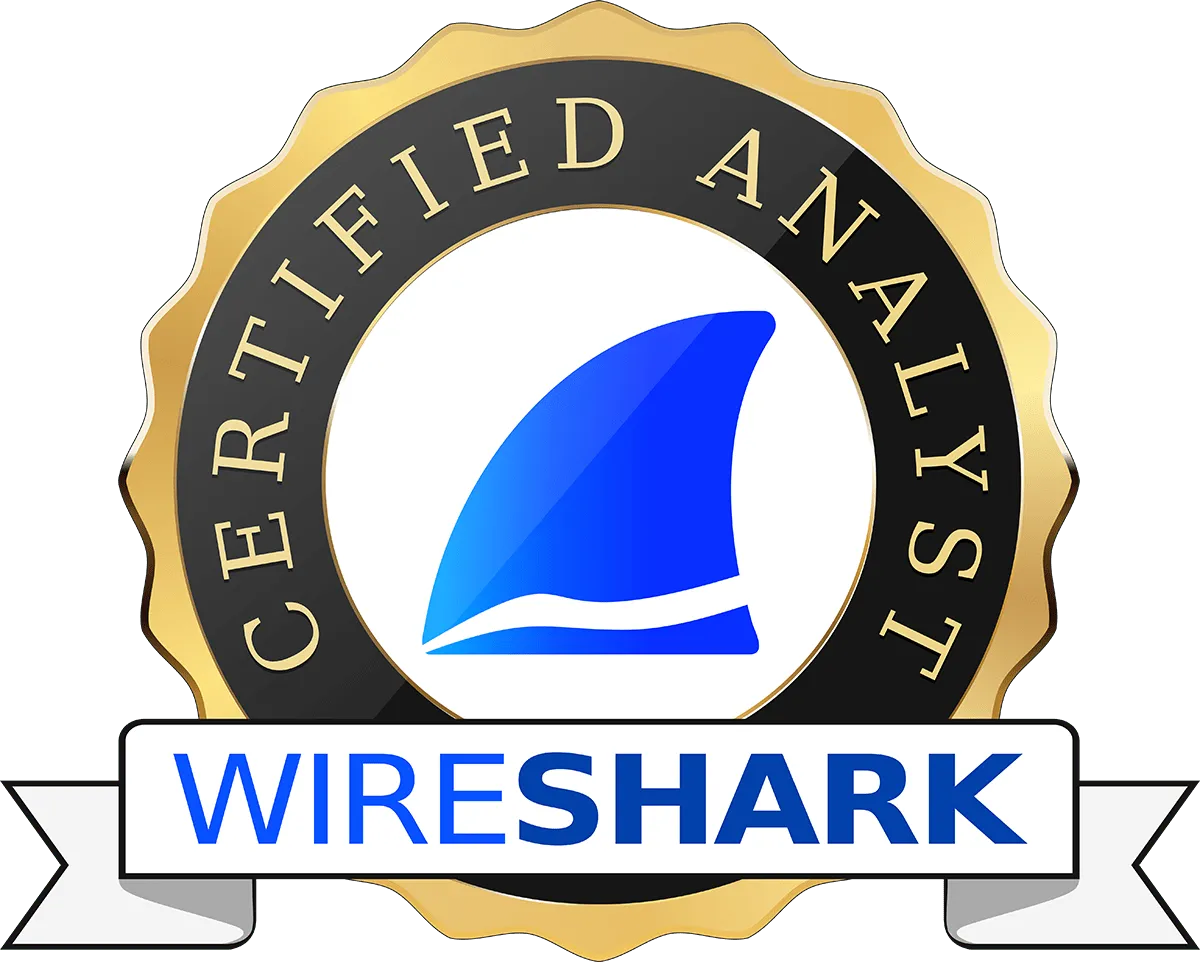What is Wireshark?
Wireshark is the world’s most popular network protocol analyzer. It is used for troubleshooting, analysis, development and education.
Wireshark is hosted by the Wireshark Foundation, a nonprofit which promotes protocol analysis education. Wireshark and the foundation depend on your contributions in order to do their work. If you or your organization would like to contribute or become a sponsor, please visit wiresharkfoundation.org.
What’s New
Bug Fixes
If you are upgrading Wireshark 4.2.0 or 4.2.1 on Windows you will need to download and install Wireshark 4.2.4 or later by hand.
The following vulnerabilities have been fixed:
-
wnpa-sec-2024-06 T.38 dissector crash. Issue 19695. CVE-2024-2955.
Additionally, CVE-2024-24478, CVE-2024-24479, and CVE-2024-24476 were recently assigned to Wireshark without any coordination with the Wireshark project. As far as we can determine, each one is based on invalid assumptions and we have requested that they be rejected.
The following bugs have been fixed:
-
Extcap with configuration never starts; "Configure all extcaps before start of capture." is shown instead. Issue 18487.
-
Packet Dissection CSV Export includes last column even if hidden. Issue 19666.
-
Inject TLS secrets closes Wireshark on Windows. Issue 19667.
-
Fuzz job issue: fuzz-2024-02-27-7196.pcap. Issue 19674.
-
Wireshark crashes when adding another port to the HTTP dissector. Issue 19677.
-
Fuzz job issue: fuzz-2024-03-03-7204.pcap. Issue 19685.
-
Fuzz job issue: randpkt-2024-03-05-8004.pcap. Issue 19688.
-
When adding a new row to a table an error report may be inserted. Issue 19705.
-
'--export-objects' does not work as expected on tshark version later than 3.2.10. Issue 19715.
-
Fuzz job issue: fuzz-2024-03-21-7215.pcap. Issue 19717.
New and Updated Features
There are no new or updated features in this release.
New Protocol Support
There are no new protocols in this release.
Updated Protocol Support
5GLI, 6LoWPAN, AFP, AllJoyn, AMQP, ASAP, Babel, BACnet, Banana, BEEP, Bencode, BFCP, BGP, BT BNEP, BT SDP, BT-DHT, BVLC, CFLOW, CIP, CMIP, CMP, COROSYNC/TOTEMSRP, COSE, CQL, CSN.1, DAP, DCCP, DCOM, DHCPv6, DICOM, DISP, DOCSIS MAC MGMT, DOF, DVB-S2, E2AP, EDONKEY, ENRP, ErlDP, Etch, EXTREME MESH, FC-SWILS, GIOP, GLOW, GNW, GOOSE, GQUIC, Gryphon, GSM A-bis OML, GSUP, GTPv2, H.223, H.225.0, H.245, H.248, H.264, H.265, HSMS, ICMPv6, ICQ, IEEE1609dot2, IPP, IPPUSB, ISAKMP, iSCSI, ISIS LSP, ISO 7816, ISUP, ITS, JSON 3GPP, JXTA, Kafka, KINK, KNX/IP, LDAP, LDP, LISP, LISP TCP, LLRP, LwM2M-TLV, M2UA, M3UA, MAC-LTE, MBIM, MMS, MONGO, MPEG PES, MPLS Echo, MQ PCF, MQTT-SN, MS-WSP, MSDP, MsgPack, NAS-5GS, NETLINK, NHRP, OpenFlow, OpenWire, OPSI, OSC, P22, P7, PANA, PIM, PNIO, ProtoBuf, PROXY, Q.2931, QNET, RDP, RESP, RPL, RSL, RSVP, RTLS, RTMPT, RTPS, S7COMM, SCTP, SIMULCRYPT, SMB2, SML, SNA, SNMP, Socks, SolarEdge, SOME/IP, SoulSeek, SUA, T.38, TCAP, TEAP, TFTP, Thread, Thrift, TN5250, USBHID, USBVIDEO, VP9, WASSP, WiMAX ASN CP, WLCCP, WTP, X.509IF, X.509SAT, XML, XMPP, YAMI, Z39.50, and ZigBee ZCL
New and Updated Capture File Support
There is no new or updated capture file support in this release.
Updated File Format Decoding Support
BLF, JPEG, and RBM
Prior Versions
This document only describes the changes introduced in Wireshark 4.2.4. You can find release notes for prior versions at the following locations:
Getting Wireshark
Wireshark source code and installation packages are available from https://www.wireshark.org/download.html.
Vendor-supplied Packages
Most Linux and Unix vendors supply their own Wireshark packages. You can usually install or upgrade Wireshark using the package management system specific to that platform. A list of third-party packages can be found on the download page on the Wireshark web site.
File Locations
Wireshark and TShark look in several different locations for preference files, plugins, SNMP MIBS, and RADIUS dictionaries.
These locations vary from platform to platform.
You can use or tshark -G folders to find the default locations on your system.
Getting Help
The User’s Guide, manual pages and various other documentation can be found at https://www.wireshark.org/docs/
Community support is available on Wireshark’s Q&A site and on the wireshark-users mailing list. Subscription information and archives for all of Wireshark’s mailing lists can be found on the web site.
Bugs and feature requests can be reported on the issue tracker.
You can learn protocol analysis and meet Wireshark’s developers at SharkFest.
How You Can Help
The Wireshark Foundation helps as many people as possible understand their networks as much as possible. You can find out more and donate at wiresharkfoundation.org.
Frequently Asked Questions
A complete FAQ is available on the Wireshark web site.
